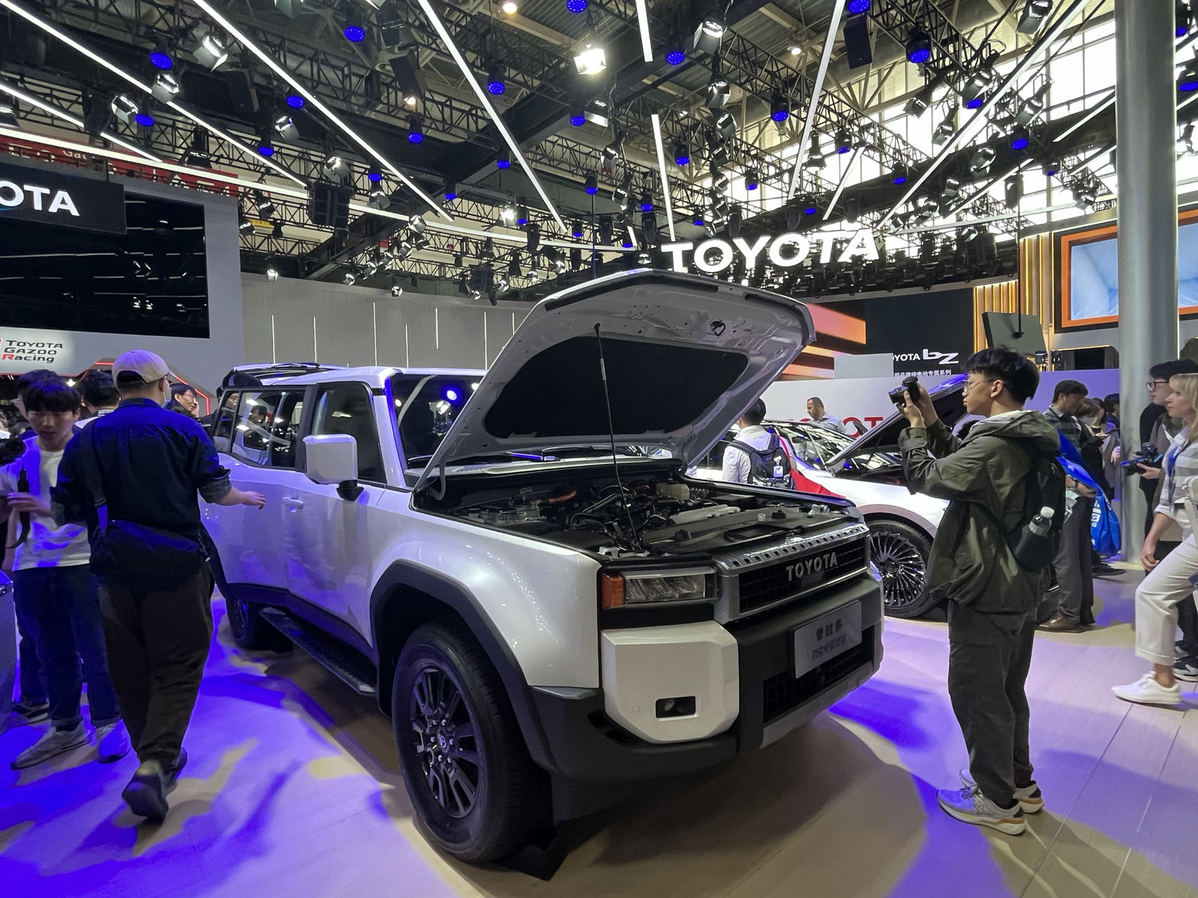
Visitors inspect a Toyota Prado SUV at the 2024 Beijing auto show in April. [CAO YINGYING/CHINA DAILY]
German and Japanese vehicles excel in their residual value, followed by Chinese ones, according to a report released last week on the used vehicle market in the first half of the year.
After three years of use, vehicles bearing German marques on average could sell at 62.43 percent of their original price tag, said the China Auto Dealers Chamber of Commerce.
They were followed by Japanese brands, whose vehicles’ average residual value stood at 60 percent, according to the CADCC, which is affiliated to the All-China Federation of Industry and Commerce.
Chinese carmakers came third on the list, at 57.34 percent. In fourth spot were the South Korean brands of Hyundai and Kia, at 54.78 percent on average.
They were followed by American and British vehicles, at 50.33 percent and 46.08 percent respectively.
Last on the list were French brands, mainly Peugeot and Citroen, whose vehicles could fetch only 42.46 percent of their original prices after three years of use in the secondhand vehicle market.
The residual value is a sign of the brands’ popularity in the new vehicle market as well. French marques have long been on the list of least-popular choices for Chinese car buyers.
Sales of Peugeot and Citroen-branded new vehicles combined totaled 37,700 units in the first half. In contrast, Volkswagen Group sold 1.34 million vehicles in the country in that period.
The popularity of German cars in the new car market in turn ensures their position in the used vehicle market.
All of the top five best-selling used models in the first half were from the premium German marques of BMW, Mercedes-Benz and Audi.
When the list is expanded to include the top 10, models from Honda, Nissan, GM’s Buick and Great Wall Motors Haval are found. But when it comes to NEVs, it was a domain reserved by Chinese brands.
Out of the top 10 electric sedans that have the best residual value, four were from BYD, two from Chinese startup Nio and one from another Chinese startup, Xpeng.
But Porsche’s Taycan stood atop the list, at 77.85 percent of the original price tag after one year’s use. BYD Seal and Nio ET5T came second and third respectively, both at more than 75 percent. Tesla’s Model 3 came fourth at 74.50 percent.
Tesla’s Model Y ranked first among the 10 best-selling electric SUVs, with one-year-old vehicles retaining 74.55 percent of the original price tag. But Chinese models dominated the list again, occupying seven spots, of which three were from BYD.
The plug-in hybrid sedan segment had a more balanced picture; Porsche was champion again with the Panamera, followed by Mercedes’ E-Class, the BYD Han, BYD Qin Plus DM-i and Leapmotor’s C01.
